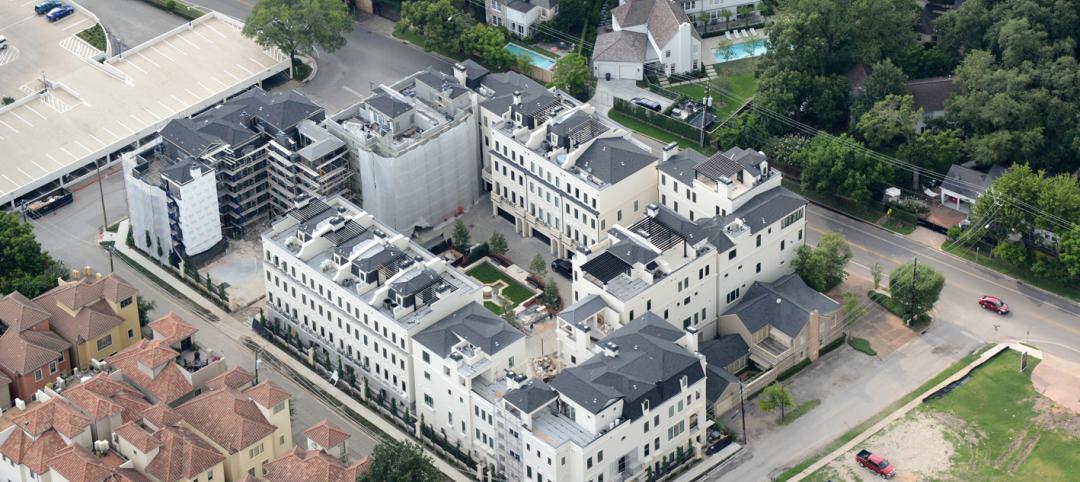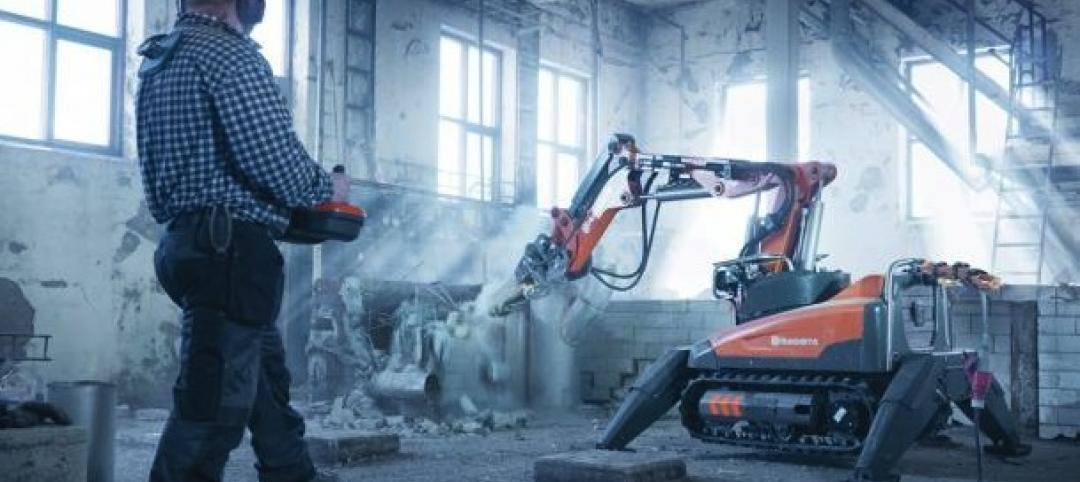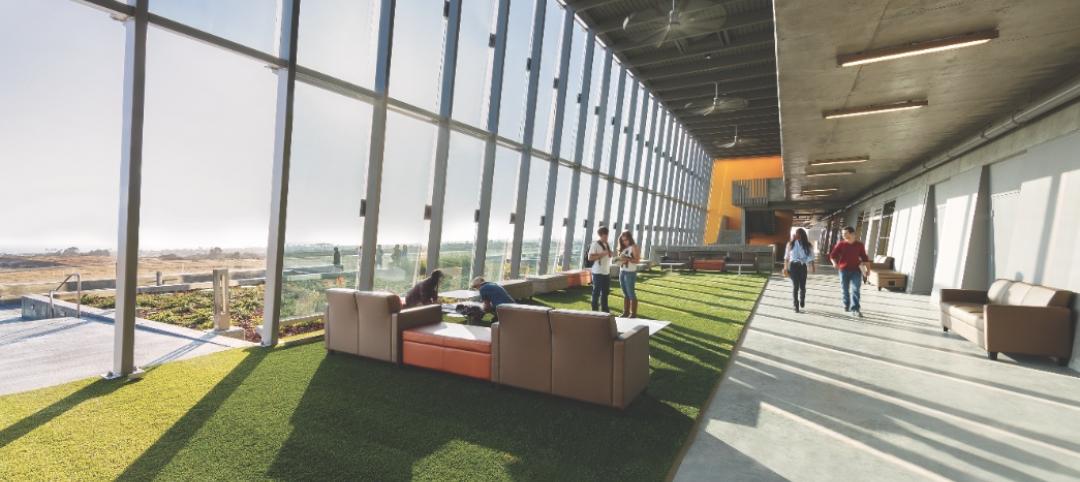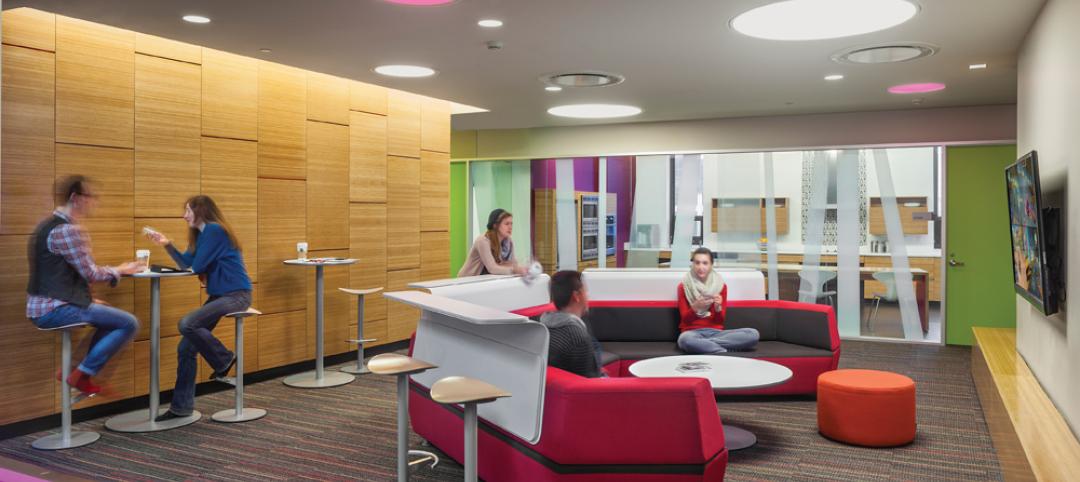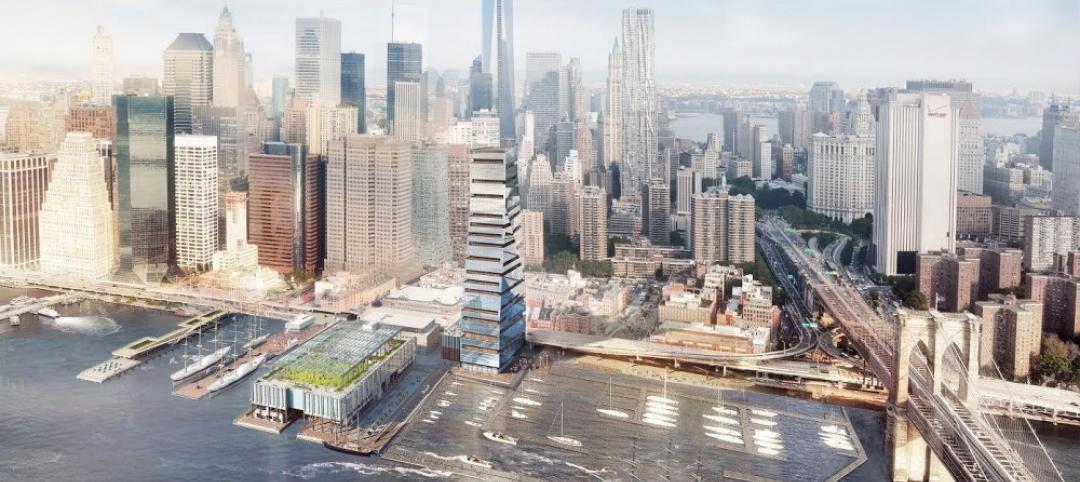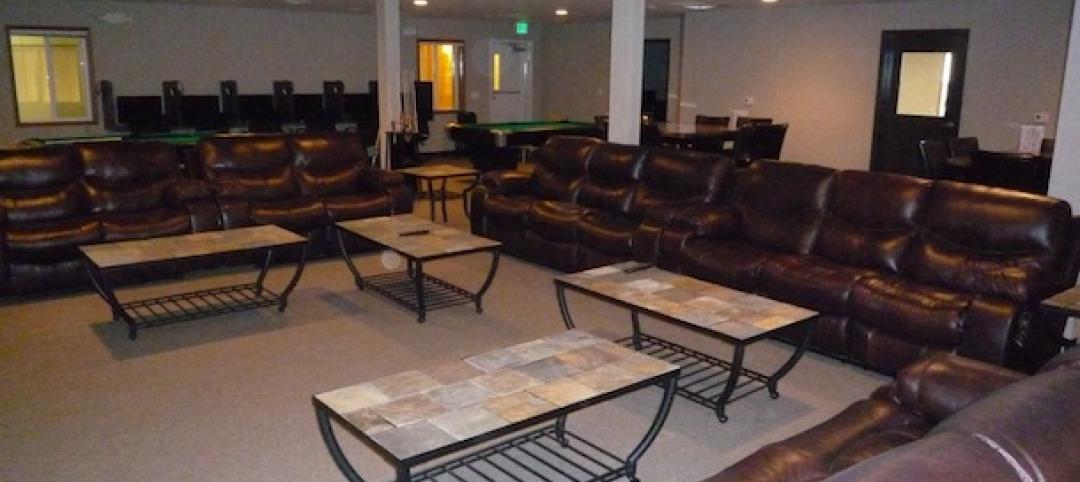Since November, Stage 3 Properties—which designs, markets, and manages rental properties in partnership with developers and investors—has been leasing Ollie at Carmel Place, a 55-unit building that is New York City’s first micro-unit multifamily development, with apartments ranging from 260 to 360 sf.
Stage 3’s “Ollie” platform offers renters the option of fully-furnished studios and shared suites, as well as access to amenities in nearby facilities that include work spaces, juice bars, pools, gyms, spas, and lounges. Ollie will even help renters find suitable roommates through its Bedvetter service.
The “all-inclusive” experience that Ollie is marketing also includes hotel-like services such as housekeeping. This week, Stage 3 announced the signing of a multiyear agreement with Hello Alfred, a personal butler and on-demand concierge service that, starting next month, renters at Carmel Place can sign up for and access through a mobile app.
Hello Alfred is a weekly subscription service that sends a background-vetted “Home Manager” to a renter’s home to take care of basic house cleaning (bed making, kitchen cleanup, etc.), laundry, dry cleaning, clothing and shoe repair, package shipping, and grocery shopping. The service starts at $32 per week.
Ollie is now Hello Alfred’s sole micro-unit partner, and charges for the services provided are already included in the quoted rents for residents.
Alfred’s CEO, Marcela Sapone, told BloombergBusiness that customers at other apartment buildings have used the service for everything from organizing receipts and meeting a cable repair person to refilling a Koi pond. If the helper isn’t able to tackle a particular job—such as plumbing or professional cleaning—he or she will find someone who can for the renter.
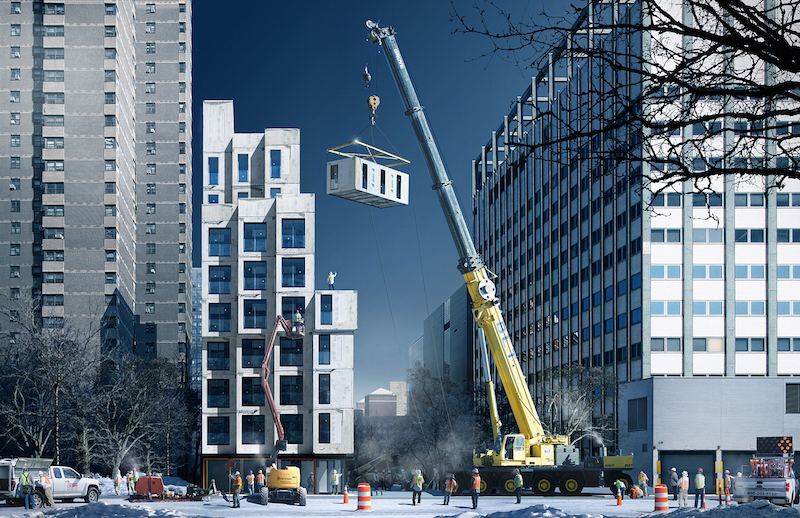
Monadnock Development assembled Ollie Carmel Place with factory-built modules for the micro apartments. The building in New York will be ready for renters to move into in the first quarter of 2016. Photo courtesy Monadnock Development.
Rents at Carmel Place run up to $3,150 per month, but 22 apartments are more affordably leased. “Carmel Place is a perfect fit for Ollie,” Chris Bledsoe, Stage 3’s Founding Partner, told Curbed NYC. “With 40% of the units allocated to low- and middle-income New Yorkers, the message of ‘inclusiveness’ is already an integral part of the community and the experience at the building. Additionally, the small unit sizes at Carmel Place afforded us an opportunity to demonstrate to the world that efficient units don’t inherently require a reduction in quality of life.”
Ollie at Carmel Place—which was once going to be called My Micro NY—was designed by nARCHITECTS and developed by Monadnock Development, which assembled the building from modular components. The development cost was $16.7 million.
Stage 3’s next market could be Los Angeles, according to its website. Hello Alfred currently has locations in New York, Boston, San Francisco, and L.A.
Related Stories
| Jan 6, 2015
Construction permits exceeded $2 billion in Minneapolis in 2014
Two major projects—a new stadium for the Minnesota Vikings NFL team and the city’s Downtown East redevelopment—accounted for about half of the total worth of the permits issued.
| Jan 2, 2015
Construction put in place enjoyed healthy gains in 2014
Construction consultant FMI foresees—with some caveats—continuing growth in the office, lodging, and manufacturing sectors. But funding uncertainties raise red flags in education and healthcare.
Sponsored | | Dec 30, 2014
Case studies: Engineered wood brings cost savings, design flexibility across commercial project types
For commercial architects facing increasing pressure to design innovative structures while simultaneously cutting costs and accommodating tight deadlines, engineered wood systems are providing a welcome solution.
| Dec 28, 2014
Robots, drones, and printed buildings: The promise of automated construction
Building Teams across the globe are employing advanced robotics to simplify what is inherently a complex, messy process—construction.
| Dec 28, 2014
AIA course: Enhancing interior comfort while improving overall building efficacy
Providing more comfortable conditions to building occupants has become a top priority in today’s interior designs. This course is worth 1.0 AIA LU/HSW.
| Dec 28, 2014
6 trends steering today's college residence halls
University students want more in a residence hall than just a place to sleep. They want a space that reflects their style of living and learning.
| Dec 22, 2014
Studio Gang to design Chicago’s third-tallest skyscraper
The first U.S. real-estate investment by The Wanda Group, owned by China’s richest man, will be an 88-story, 1,148-ft-tall mixed-use tower designed by Jeanne Gang.
| Dec 17, 2014
ULI report looks at growing appeal of micro unit apartments
New research from the Urban Land Institute suggests that micro units have staying power as a housing type that appeals to urban dwellers in high-cost markets who are willing to trade space for improved affordability and proximity to downtown neighborhoods.
| Dec 15, 2014
SHoP Architects plans to turn NY's Seaport District into pedestrianized, mixed-use area
The scheme includes a proposed 500-foot luxury residential tower that would jut out into the harbor, extending the Manhattan grid out into the waterfront.
Sponsored | | Dec 3, 2014
Modular Space Showcase: Bringing work-life balance to energy workers in the Bakken region
To meet the demands of the booming energy business, Williston needs to provide homes, recreation centers, restaurants, hotels, and other support facilities for the tidal wave of energy workers relocating to the Bakken Shale area. SPONSORED CONTENT




